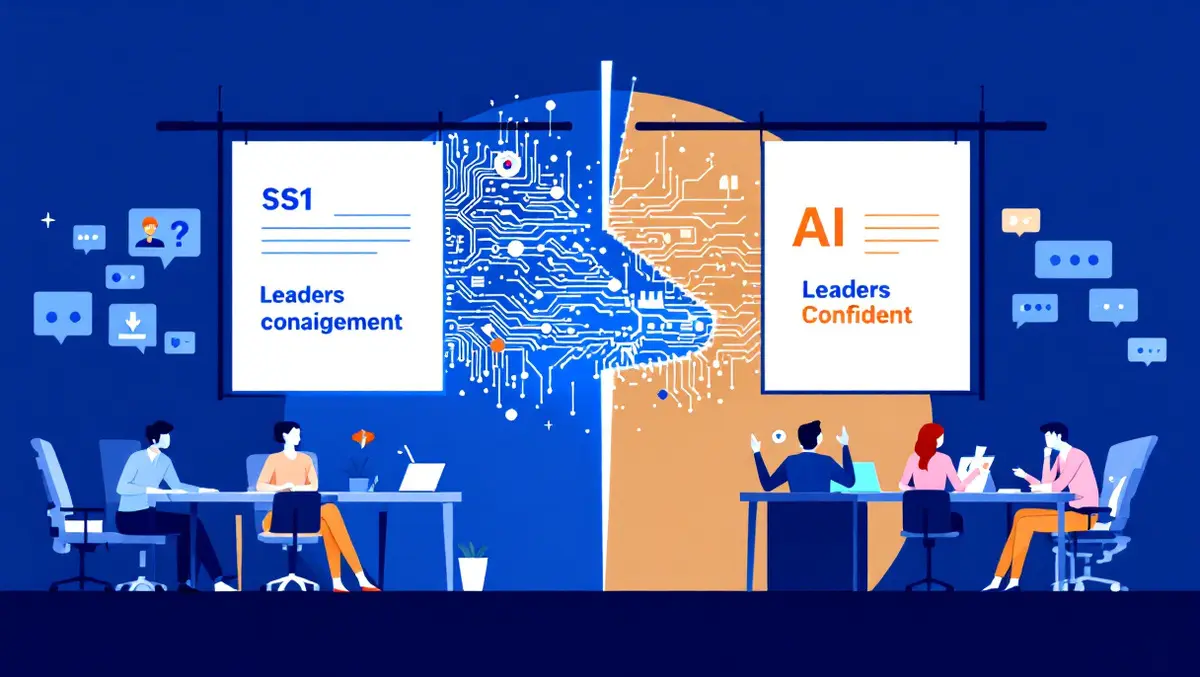
AI adoption trust gap between employees & leaders grows
Recent research conducted by Qualtrics highlights a disparity between employees and leadership regarding the adoption of AI in the workplace.
The State of AI in Employee Experience report gathered insights from over 35,000 employees globally, with 2,040 participants from Australia.
Analysis indicates rising concerns among employees about executives' ability to implement AI effectively. Only 45% of Australian managers and individual contributors trust their leaders to handle AI appropriately, which is 15 percentage points lower than that of senior leaders. Furthermore, less than half (46%) believe leadership will prioritise their wellbeing over profits when deploying new technologies.
This trust deficit further extends to the perception that new technologies are not being implemented with clear principles, ethics, and guidelines, a viewpoint shared by only 34% of employees compared to 53% of senior leaders.
"The relationship between employees and their bosses is already tense, and ongoing changes in the workplace are intensifying this friction," said Dr. Cecelia Herbert, Workplace Behavioural Scientist at Qualtrics.
Dr. Herbert further explained, "AI is a prominent source of disruption right now, and we are all depending on organisations to navigate this new landscape with the highest level of integrity."
"As leaders explore the potential of AI, it cannot be overstated how critical it is for leaders to build trust with employees. This requires demonstrating care for people, as well as seeking out and valuing diverse perspectives, so they can make informed, transparent decisions."
The report also highlights a disconnect in perceptions about AI's impact on job roles. There is a 27-point gap in positive sentiment towards AI between senior leaders (56%) and employees at manager level or below (29%).
A further finding suggests that employees focus more on boosting quality and efficiency rather than merely increasing productivity.
Only 29% of employees expect to use AI to amplify their output. In contrast, 43% intend to raise their efficiency, and 39% plan to engage in new tasks. A mere 38% of employees believe AI will enhance the quality of their work, signalling the need for improved communication on AI's benefits.
"The productivity promise of AI lies in increasing the quality and efficiency of work rather than merely delivering more of it."
"However, on the surface, there appears to be another point of misalignment on the value of AI - while executives are bullish about productivity and efficiency boosts, employees don't necessarily see it that way," Dr. Herbert commented.
"These insights are encouraging for organisations, as they demonstrate that employees are focused on improving the services, products, and experiences they deliver."
The study also investigates the link between positive employee experiences and the adoption of AI. Findings suggest that engaged employees, whose expectations are met, tend to be more receptive to AI, trust their leadership more, and utilise AI more frequently.
"There is a deep, intrinsic link between good employee experience and employees' comfort and adoption of AI," added Dr. Herbert.
"This reality underscores the need for organisations to prioritise employee needs as they navigate change and address the tensions between leaders and their teams. Ultimately, frequent and ongoing dialogue is the vehicle of organisational trust that's key to building a competitive business advantage."
The report concludes with suggestions for better AI adoption, such as aligning AI's purpose with organisational goals, providing robust training, designating AI champions, and ensuring collaboration between HR and IT departments.


